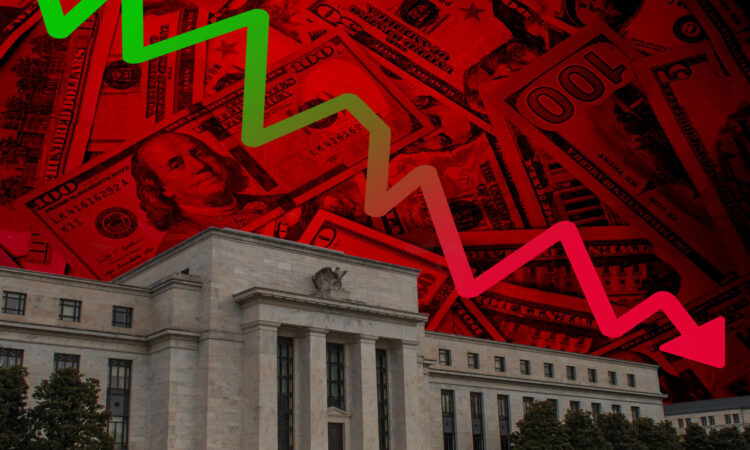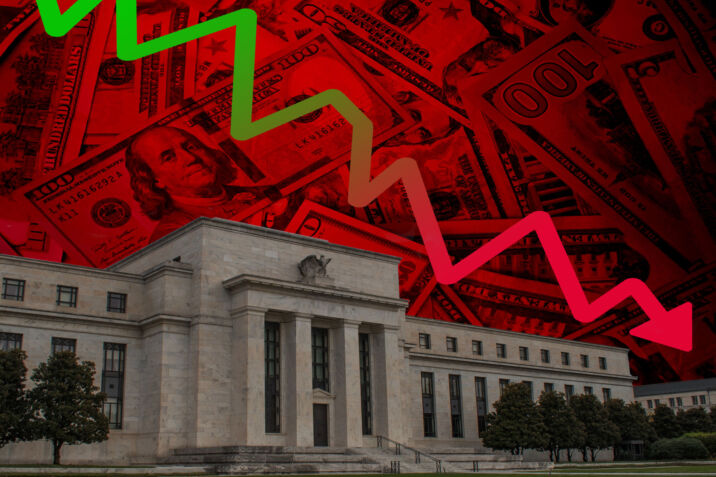

The Federal Reserve has published findings from its inaugural climate scenario analysis, two years after the exercise was announced.
The US supervisor had asked six major banks to first consider the impact of physical climate risks on their residential and commercial real estate loans over a one-year horizon.
The lenders were then asked to do the same for transition risks impacts – which consist of regulatory, technology and other social changes resulting from decarbonisation – on their corporate and corporate real estate loans portfolio over 10 years.
The participating banks were Bank of America, Citigroup, Goldman Sachs, JPMorgan Chase, Morgan Stanley and Wells Fargo.
The exercise used a hypothetical hurricane event in the US Northeast as a stand-in for physical climate risk, and found that 20-50 percent of loans would be impacted in the most severe hurricane, assuming no public or private insurance coverage.
Estimates of default probability increased by 40 basis points for corporate real estate loans, and 10 basis points for residential real estate loans across the six banks.
For the transition risk module, the Fed circulated two climate scenario models developed by the Network for Greening the Financial System (NGFS) for banks to estimate credit risk – a net-zero scenario where governments ramp up climate policies and carbon pricing, and another which reflects no changes to government policies, resulting in 3C or more of warming.
The Fed said transition risks would be more severe in the net-zero scenario compared to the current policy pathway scenario over the 10-year period.
The financial impact was estimated at a 100bp increase in the probability of default for corporate real estate loans under the net-zero scenario compared to the current policies scenario, and an increase of 30bp for corporate loans.
Participating banks commented that both scenarios were considered “orderly, rather than stress scenarios” and had used “benign” economic variables, according to Fed notes. In contrast, a “disorderly scenario” would explore higher transition risk due to policies being delayed or divergent across countries and sectors.
Similar tests by other supervisors, such as the European Central Bank and Japan’s Financial Services Agency, have commonly tested bank loan books against one or more disorderly scenario.
Unlike its peers, the Fed also did not report the size of potential financial losses which would be incurred under the hypothetical climate scenarios.
In instructions provided to the banks, the supervisor said: “Loss estimates would involve additional assumptions around the evolution of participants’ balance sheets and business models and would be incomplete given the partial nature of the exercise.”
Reuters reported last week that Citi’s submission to the exercise included loss estimates of around $10.3 billion as a result of defaults under a net-zero scenario, and more than $7.1 billion under a current policies scenario.
The Fed and Citi have been contacted for comment.
More broadly, the Fed said the contributing banks had complained about “significant data and modelling challenges”, including information gaps on client plans to manage climate risks, insurance coverage and building characteristics.
It said that external data providers were used to source data “in many cases”.
Capital implications
The Fed has stressed the exercise’s exploratory nature, saying in its summary of the results that it would “not have consequences for bank capital or supervisory implications”.
The regulator has come under significant pressure from US politicians to avoid any climate-related intervention, including its decision to join the NGFS in 2020, which made it the last major western central bank to be admitted to the group.
Around 31 central banks had either started work on a scenario analysis exercise or had completed it by the time the Fed announced its pilot in 2021.
Ahead of the release, Fed chair Jay Powell noted in a speech at Stanford University that isolated climate change impacts are not within the supervisor’s remit.
“Policies to address climate change are the business of elected officials and those agencies that they have charged with this responsibility,” he said. “The Fed has received no such charge.
“We will remain alert to the risk that there will be pressure to expand that role over time. We are not, nor do we seek to be, climate policymakers.”
The Fed’s position contrasts starkly with other jurisdictions such as Europe, which has amended its capital framework to explicitly include climate factors, and New Zealand, which has confirmed that climate factors will be assessed when setting capital requirements.
In the UK, the Bank of England has separately announced that it is monitoring how banks are managing climate risks and will publish estimates of climate-related losses later this year.





